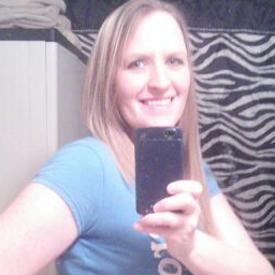We are pleased to announce that as of March 4, 2025, an updated Rich Text Editor has been introduced in the MyFitnessPal Community. To learn more about the changes, please click here. We look forward to sharing this new feature with you!
Resting heart rate?

capriqueen
Posts: 978 Member
I found my resting heart rate to be 85 bpm. Does this mean I burn more than the 1750 calories I thought I did for a sedentary lifestyle? I know it sounds stupid, but.....
0
Replies
-
A resting heart rate of 85 is Below Average. You should aim for an resting heart rate of max 74.
To work out how many calories you burn you need to have age, height, weight and activity level.
I am 42, 6;0, 200 pounds, and very active, I need about 3000 calories to maintain my weight. My resting heart rate is 620 -
I'm confused. My resting heart rate should be lower to burn more calories? Pardon my ignorance, could you clear that for me?
I forgot to mention. On normal days it's around 72-80. Today I found it's elevated....I have a cold and cough, do you think that could be causing it?0 -
A resting heart rate of 85 is Below Average. You should aim for an resting heart rate of max 74.
To work out how many calories you burn you need to have age, height, weight and activity level.
I am 42, 6;0, 200 pounds, and very active, I need about 3000 calories to maintain my weight. My resting heart rate is 62
Does RHR figure into your daily calorie needs? My RHR is around 48-52 right now.0 -
Your heart rate is always elevated when you are sick... or in pain, or stressed, etc.
You cant figure your calories burnt JUST on your heart rate.
In general, the lower the heart rate, the healthier the heart/you are. The more you work out, the lower your resting heart rate will be. SO, if you have had a bunch of really hard workouts.. chances are.. you will have a lower resting heart rate. Keep in mind that in order to have a notable difference in your heart rates (unless you are sick, stressed, starting new medications, etc) You will have to have sustained a workout routine for 30 or more days.. some cardiologists even suggest 6 weeks or more. (as does my daughter's.)
resting heart rates should be checked in the morning, after a good nights sleep, before you set up in the bed in the morning. (Per my daughters cardiologist) to get THE MOST accurate heart rate. You should measure BMP for 20 seconds and multiply by 3.
Hope this helps you!0 -
My RMR is around 57... I didn't think it was good, but now I feel better. Thanks for clearing that up guys.0
-
http://www.topendsports.com/testing/heart-rate-resting-chart.htm
Consult this link about resting heart rate. Your resting heart rate, regardless of the number, doesn't mean you're burning more calories, rather it means your heart is struggling to keep up with the needs of your body. Better fitness = lower heart rate
Heart rate isn't a factor in any calculator for BMR or TDEE.0 -
Thanks everyone! This really cleared things for me
 0
0 -
Your heart rate is always elevated when you are sick... or in pain, or stressed, etc.
You cant figure your calories burnt JUST on your heart rate.
In general, the lower the heart rate, the healthier the heart/you are. The more you work out, the lower your resting heart rate will be. SO, if you have had a bunch of really hard workouts.. chances are.. you will have a lower resting heart rate. Keep in mind that in order to have a notable difference in your heart rates (unless you are sick, stressed, starting new medications, etc) You will have to have sustained a workout routine for 30 or more days.. some cardiologists even suggest 6 weeks or more. (as does my daughter's.)
resting heart rates should be checked in the morning, after a good nights sleep, before you set up in the bed in the morning. (Per my daughters cardiologist) to get THE MOST accurate heart rate. You should measure BMP for 20 seconds and multiply by 3.
Hope this helps you!
I remember checking my heart rate when I was asleep in bed---was somewhere between 55 and 60.0
This discussion has been closed.
Categories
- All Categories
- 1.4M Health, Wellness and Goals
- 391.6K Introduce Yourself
- 44K Getting Started
- 260.5K Health and Weight Loss
- 175.6K Food and Nutrition
- 47.5K Recipes
- 232.7K Fitness and Exercise
- 393 Sleep, Mindfulness and Overall Wellness
- 6.4K Goal: Maintaining Weight
- 8.5K Goal: Gaining Weight and Body Building
- 153.1K Motivation and Support
- 8.1K Challenges
- 1.3K Debate Club
- 96.3K Chit-Chat
- 2.5K Fun and Games
- 3.3K MyFitnessPal Information
- 23 News and Announcements
- 1.2K Feature Suggestions and Ideas
- 2.7K MyFitnessPal Tech Support Questions




